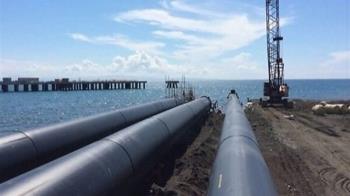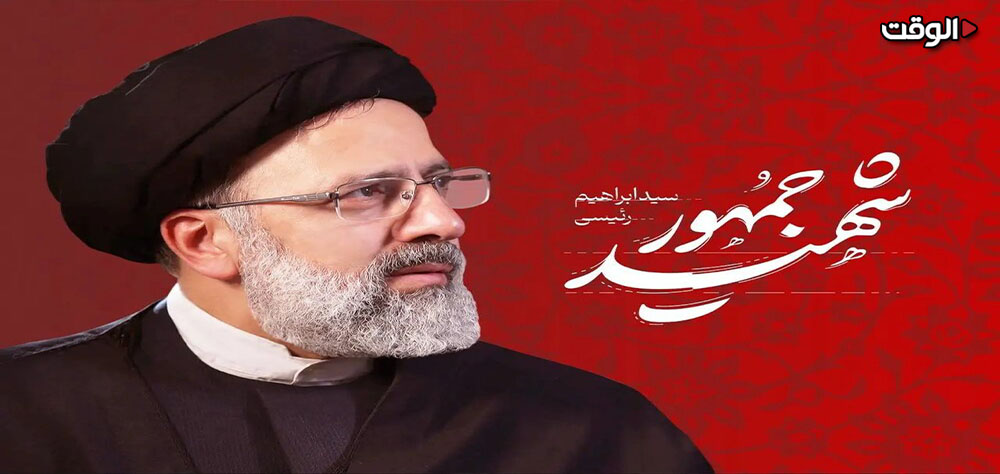Alwaght- Iran is mourning its revolutionary President Sayyed Ibrahim Raisi who on Sunday was martyred in a helicopter crash in northwest of the country. He dedicated his life for the people's welfare and economic prosperity. During three years of his tireless presidency, President Raisi was a source of many services to the progress of the Islamic Republic of Iran on the world stage. Actually, one of the brilliant areas of his activities was the foreign relations and policy that shines as a precious legacy.
In addition to the tangible and accomplished outcomes of the policies of President Raisi’s administration in boosting the foreign relations in the path of realizing national interests, increasing national power, enhancing the foreign trade, and neutralizing the Western sanctions, its strategies, approaches, and priorities in the foreign policy have certainly been the cornerstone of many actions that with visionary strategies can facilitate the work of the future administrations.
Here we focus on a small but important part of President Raisi's foreign policy achievements.
1. Membership in regional and international blocs
Strengthening international alliances in foreign relations, especially membership in regional common market organizations and free trade agreements, has always been one of the important objectives in the foreign policy of the Islamic Republic. Remarkable gains have been made to this end under President Raisi who, compared to his predecessors, further used Iran's key geopolitical position and domestic economic capabilities to secure Iran's share from the regional and international trade.
One of these achievements was finalization of Iran's membership in the two key economic blocs of BRICS and Shanghai Cooperation Organization (SCO) along with the emerging non-Western powers. Though Iran for years was observer member of these blocs, if it was not for the major change in the foreign policy of Iran under President Raisi who adopted "Look East" policy, Iran's membership could not happen this fast. Russia and China, as two great strategic allies in the transitioning global order, consider the Islamic Republic of Iran as the third side of their eastern alliance due to its completely independent policy, sensitive geopolitical position, military power and extensive regional influence. The administration of Raisi has played a key role in realization of this fulfillment. Indeed, membership in SCO will provide unmatched opportunities for Iran's economic developments and foreign trade. This bloc covers about 30 percent of the global GDP and about 40 percent of the world's population, something meaning total defeat of the West's sanctions policy to isolate Iran from the global trade.
Membership in BRICS and in joining the club of emerging powers, which many experts say will replace the G7 prospectively, will facilitate boosting the foreign trade, cutting the trade costs and customs, technology and knowledge transfer, providing raw material, expanding the interactions with the global markets, and doing business with national currencies which will eliminate the international payment problems.
During President Raisi's period and thanks to the focus of the foreign policy apparatus under Foreign Minister Hossein Amir-Abdollahian, Iran managed to take a high step towards membership in the Eurasian Economic Union (EAEU) and signed a free trade deal with this organization that accounts for about 2.4 percent of the global trade.
2. Marketing and opening new trade gates
Economy was a priority to the foreign policy of the government of President Raisi, to an extent that during his 33-month presidency, he visited 28 foreign countries. In the meantime, although the government's priority was to expand all-round economic relations with neighbors and countries in the region, President Raisi did not ignore other markets receptive of Iranian companies and goods, especially in developing countries.
To this end, after years of stagnation, Raisi's administration revived Iran's trade and political position in Latin America. In addition to meetings with Latin American leaders on the sidelines of the UN annual sessions, in June 2023 he started a five-day tour that saw him visiting Venezuela, Nicaragua, and Cuba. By signing 35 cooperation documents in various areas, he took a long leap to restore Iran's trade share in this region.
During his presidency, relations with Africa saw a surge, one of whose manifestations was Iran-Africa Summit initiative held earlier in April in Tehran at the level of senior officials, including finance ministers of over 30 African countries. President Raisi toured the three countries of Kenya, Uganda, and Zimbabwe in July 2023, the first visit of an Iranian President to Africa in 11 years. The tour secured considerable achievements for Tehran.
The jump in oil and gas revenues in the middle of tough sanctions and energy agreements with neighbors are among the other gains of the economic diplomacy of the President Raisi’s government. According to officials, Iran has managed to increase oil and gas production and export revenues to higher levels than before the US withdrawal from the nuclear agreement, officially called Joint Comprehensive Plan of Action (JCPOA).
From another aspect, activating the energy diplomacy and boosting cooperation with neighboring countries was on the agenda of the oil ministry since the beginning of President Raisi’s administration, ending five years of failure of Gaza agreement with Turkmenistan. This three-party agreement, which also included Azerbaijan, even paved the way for Tehran to access European gas market in the future.
Another key step by his administration in energy exports was taken in his recent trip to Pakistan. The two countries agreed to conclude Iran gas pipeline to Pakistan. By taking the final steps of this agreement, Iran's share of the region's energy market will surely witness a fundamental transformation, especially that with the inauguration of the 11th phase of South Pars gas field in his administration in this shared energy field with Qatar, Iran's production surpassed that of the Qataris even in the midst of sanctions.
3. Unlocking Iran's corridor capacities
Iran is a country with a unique geopolitical position on a highway connecting the east, west, north and south of the world, and this issue has created the opportunity for Iran to play a key role in major transit projects and the international trade network and that can both contribute to its economic development and secure for it income sources.
In this area, we can see an upswing in Iran's regional and international rank under President Raisi’s administration. In this administration, the change in approach of the "command of resistance economy" caused the government to prioritize the jump in development of North-South Corridor, consequently allowing the rail and road projects to experience a remarkable development in a short period. In this connection, cooperation with India to expand Chabahar port took pace and the rail connection to Afghanistan was concluded with inauguration of Khaf-Herat railway in July last year.
Also, the East-West Corridor is a mid-term strategic plan over whose hosting there is an intense competition given its huge transportation potentials. Some rival routes are already active and entrenched within framework of this corridor. When three years ago the Road and Belt Initiative (RBI) was inaugurated and first Turkish freight train made its way to China without passing through Iran, there emerged a feeling that Iran fell behind from this megaproject. So, Iran was the big absentee of this significant project in past administrations despite awareness of the geopolitical importance of the RBI.
This approach changed under President Raisi’s administration as the latter focused on taking advantage of the country's regional capacities. Under this administration, a new approach was put high on agenda activating use of the country’s transit capacity to bilateral or multilateral trade exchanges with the allies. Inaugurating the freight railway of Kazakhstan-Turkmenistan-Iran-Turkey with transportation of containers in May 2022 to boost East-West Corridor and signing the protocol of China transit to Europe in Tashkent summit in November 2023 were among the fruits of this policy that managed to restore Iran to the RBI, also called New Silk Road.



























